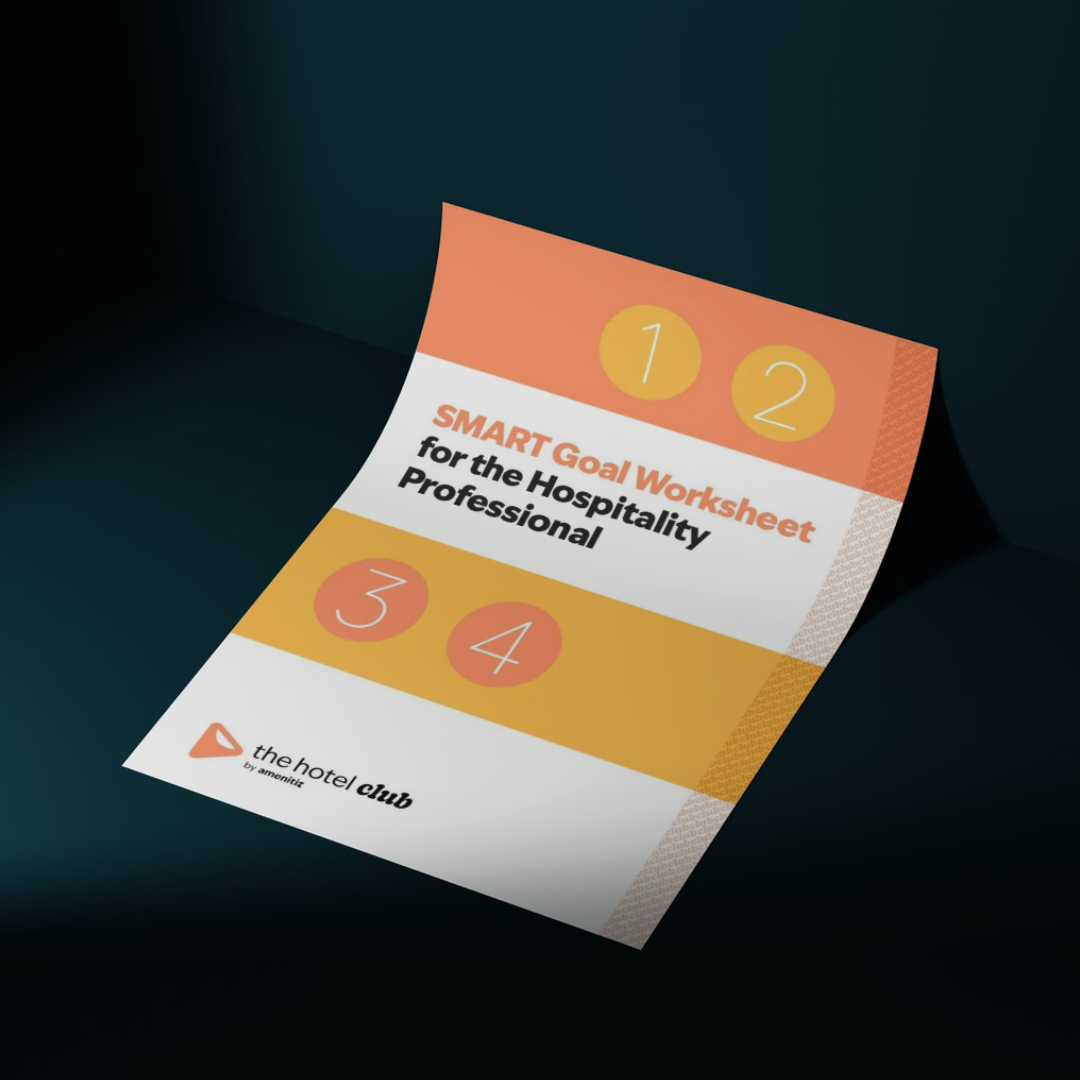Mastering SMART Goals: A Hospitality Professional’s Toolkit for Growth
In the fast-paced world of hospitality, personal and professional growth isn’t just a bonus—it’s essential. Whether you’re looking to improve your service skills, advance your career, or enhance guest satisfaction, setting clear and actionable goals can make all the difference. That’s where the SMART framework comes in.
This practical approach helps hospitality professionals set goals that are not only achievable but also impactful. Let’s break it down and explore how the SMART Goal Worksheet can guide you to success.

Breaking Down the SMART Framework
The SMART framework is a goal-setting method designed to bring structure and clarity to your aspirations. Here’s how it works
1. Specific (S): Define Your Goal Clearly
Start with a focused goal. Avoid vague statements like “get better at customer service” and instead aim for something precise, like:
-“Improve guest check-in satisfaction scores by streamlining the process.”
-Use action verbs like “enhance,” “develop,” or “increase” to make your goals actionable.
2. Measurable (M): Set Metrics for Success
How will you know if you’ve achieved your goal? Define measurable outcomes such as:
-A 10% increase in positive online reviews.
-A reduction in check-in time from 10 minutes to 7 minutes.
These benchmarks help you track progress and celebrate milestones.
3. Achievable (A): Ensure It’s Realistic
Ambition is great, but your goals need to be attainable given your current resources, skills, and time.
For example:
For example:
-If you’re aiming to improve service training, start with one team or department before expanding property-wide.
4. Relevant (R): Align Goals with Your Career
Ask yourself:
-Does this goal help me grow in my role or advance my career?
-Does it align with my team or organization’s objectives?
Relevance ensures your efforts are meaningful and tied to broader outcomes.
5. Time-bound (T): Set Deadlines
A goal without a timeline is just a dream. Set specific deadlines to stay focused.
For example:
For example:
-“Complete guest service training improvements within three months.”
-Break larger goals into smaller milestones with their own deadlines to maintain momentum.
